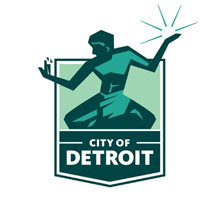| Outcome | Not compliant |
2 violations cited :
Code 4-602.13
Nonfood contact surface(s) with accumulation of debris
FULL FOOD CODE:
NonFOOD-CONTACT SURFACES of EQUIPMENT shall be cleaned at a frequency necessary to preclude accumulation of soil residues.
NonFOOD-CONTACT SURFACES of EQUIPMENT shall be cleaned at a frequency necessary to preclude accumulation of soil residues.
Core
Not corrected
Code 4-602.11
Food-contact surface(s) used for nonpotentially hazardous food(s) not cleaned when contaminated at least every 24 hours
FULL FOOD CODE:
(A) Equipment FOOD-CONTACT SURFACES and UTENSILS shall be cleaned: (1) Except as specified in ¶ (B) of this section, before each use with a different type of raw animal FOOD such as beef, FISH, lamb, pork, or POULTRY; (P) (2) Each time there is a change from working with raw FOODS to working with READY-TO-EAT FOODS; (P) (3) Between uses with raw fruits and vegetables and with POTENTIALLY HAZARDOUS FOOD (TIME/TEMPERATURE CONTROL FOR SAFETY FOOD); (P) (4) Before using or storing a FOOD TEMPERATURE MEASURING DEVICE; (P) and (5) At any time during the operation when contamination may have occurred. (P) (B) Subparagraph (A)(1) of this section does not apply if the FOOD-CONTACT SURFACE or UTENSIL is in contact with a succession of different raw animal FOODS each requiring a higher cooking temperature as specified under § 3-401.11 than the previous FOOD, such as preparing raw FISH followed by cutting raw poultry on the same cutting board. (C) Except as specified in ¶ (D) of this section, if used with POTENTIALLY HAZARDOUS FOOD (TIME/TEMPERATURE CONTROL FOR SAFETY FOOD), EQUIPMENT FOOD-CONTACT SURFACES and UTENSILS shall be cleaned throughout the day at least every 4 hours. (P) (D) Except when dry cleaning methods are used as specified under § 4-603.11, surfaces of UTENSILS and EQUIPMENT contacting FOOD that is not POTENTIALLY HAZARDOUS (TIME/TEMPERATURE CONTROL FOR SAFETY FOOD) shall be cleaned: (1) At any time when contamination may have occurred; (2) At least every 24 hours for iced tea dispensers and CONSUMER self-service UTENSILS such as tongs, scoops, or ladles; (3) Before restocking CONSUMER self-service EQUIPMENT and UTENSILS such as condiment dispensers and display containers; and (4) In EQUIPMENT such as ice bins and BEVERAGE dispensing nozzles and enclosed components of EQUIPMENT such as ice makers, cooking oil storage tanks and distribution lines, BEVERAGE and syrup dispensing lines or tubes, coffee bean grinders, and water vending EQUIPMENT: (a) At a frequency specified by the manufacturer, or (b) Absent manufacturer specifications, at a frequency necessary to preclude accumulation of soil or mold.
(A) Equipment FOOD-CONTACT SURFACES and UTENSILS shall be cleaned: (1) Except as specified in ¶ (B) of this section, before each use with a different type of raw animal FOOD such as beef, FISH, lamb, pork, or POULTRY; (P) (2) Each time there is a change from working with raw FOODS to working with READY-TO-EAT FOODS; (P) (3) Between uses with raw fruits and vegetables and with POTENTIALLY HAZARDOUS FOOD (TIME/TEMPERATURE CONTROL FOR SAFETY FOOD); (P) (4) Before using or storing a FOOD TEMPERATURE MEASURING DEVICE; (P) and (5) At any time during the operation when contamination may have occurred. (P) (B) Subparagraph (A)(1) of this section does not apply if the FOOD-CONTACT SURFACE or UTENSIL is in contact with a succession of different raw animal FOODS each requiring a higher cooking temperature as specified under § 3-401.11 than the previous FOOD, such as preparing raw FISH followed by cutting raw poultry on the same cutting board. (C) Except as specified in ¶ (D) of this section, if used with POTENTIALLY HAZARDOUS FOOD (TIME/TEMPERATURE CONTROL FOR SAFETY FOOD), EQUIPMENT FOOD-CONTACT SURFACES and UTENSILS shall be cleaned throughout the day at least every 4 hours. (P) (D) Except when dry cleaning methods are used as specified under § 4-603.11, surfaces of UTENSILS and EQUIPMENT contacting FOOD that is not POTENTIALLY HAZARDOUS (TIME/TEMPERATURE CONTROL FOR SAFETY FOOD) shall be cleaned: (1) At any time when contamination may have occurred; (2) At least every 24 hours for iced tea dispensers and CONSUMER self-service UTENSILS such as tongs, scoops, or ladles; (3) Before restocking CONSUMER self-service EQUIPMENT and UTENSILS such as condiment dispensers and display containers; and (4) In EQUIPMENT such as ice bins and BEVERAGE dispensing nozzles and enclosed components of EQUIPMENT such as ice makers, cooking oil storage tanks and distribution lines, BEVERAGE and syrup dispensing lines or tubes, coffee bean grinders, and water vending EQUIPMENT: (a) At a frequency specified by the manufacturer, or (b) Absent manufacturer specifications, at a frequency necessary to preclude accumulation of soil or mold.
Core
Not corrected
